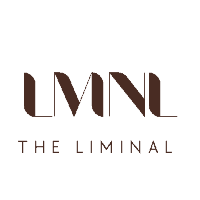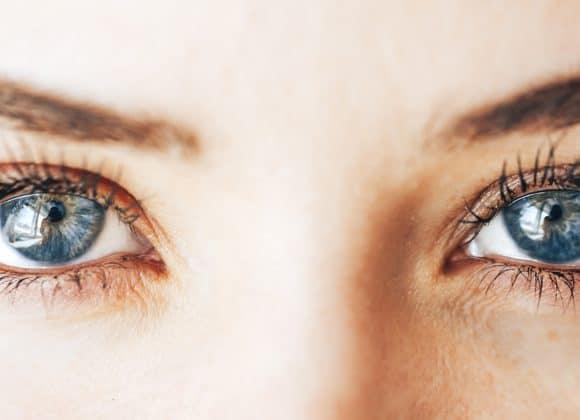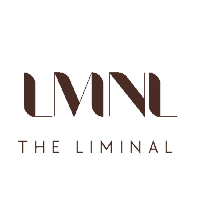Utah is coming in hot as the first state in the US to legalize psychedelics for therapeutic use.
California and Massachusetts have had legislative wheels in motion for the legalization of medicinal psychedelics for a while now and were expected to lead the way for the rest of the country, but Utah lawmakers said “hold my shrooms.”
A new bill approved this week allows Utah doctors to prescribe MDMA and psilocybin for their adult mental health patients. This makes Utah the first state in the U.S. to authorize the use of psychedelic therapy as a medical treatment.
Gov. Spencer Cox (R-UT) didn’t actually sign the bill putting the program in place, but he didn’t veto it either, citing “overwhelming legislative support.”
The pilot program goes into effect May 1, 2024.
Why did Utah become the first state to legalize psychedelic therapy?
The psilocybin and MDMA based psychedelic therapy program was pitched as an emergency alternative option to help solve the state’s mental health crisis.
Recent studies revealed Utah ranks seventh in the nation in the percentage of adults with depression and suicide is the leading cause of death for Utahns ages 10 to 17 and 18 to 24.
Psychedelic drugs like psilocybin, sometimes referred to as “magic mushrooms” and MDMA, also known as ecstasy or molly are gaining more mainstream acceptance because of their therapeutic potential. As more of the latest research comes out we’ve learned more about the efficacy of psychedelics for anxiety, depression, addiction, PTSD and trauma recovery.
There are also more health news articles supporting the need for the legalization of psychedelics.
According to The Salt Lake Tribune, as regulators mulled over legalizing these drugs research – by both professionals and amateurs – has been booming in Utah. This public and private push for psychedelic therapy triggered local lawmakers to take action.
Is the Utah psychedelic therapy program federally approved?
In a word, no.
However that didn’t stop local lawmakers from moving forward.
The Mental Illness Psychotherapy Drug Task Force (MIPDTF) was established as a result of
H.B. 167 Mental Illness Psychotherapy Drug Task Force during the 2022 General Session of
the Utah Legislature.
The mission of the psychedelic task force was to focus on the needs of Utah residents but to the frustration of some Utahans, the official report issued by the task force validated both the need and resources for the program, but ultimately recommended waiting for federal guidelines to change.
The task force ended last year and had previously released a report saying that while evidence suggests that psychedelic therapy is safe and effective, lawmakers should wait to act until they were approved by the FDA.
Cox, a conservative Republican, who champions state’s rights reportedly wanted to push ahead at the state level without deferring to the federal government. .
“I am generally supportive of scientific efforts to discover the benefits of new substances that can relieve suffering. However, we have a task force that was set up specifically to advise the Legislature on the best ways to study Psilocybin and I’m disappointed that their input was ignored.”
– Gov. Spencer Cox
What does Utah SB266 do?
Bill sponsor Sen. Kirk Cullimore, R-Sandy, pitched SB266 as a way to address Utah’s growing mental health crisis.
“This bill would allow a doctor, who has an intimate understanding of a patient’s mental health diagnosis and treatment protocols, to make the best decision for their patients,” said Cullimore.
The new measure allows regulated access at only two types of health care systems in the state.
Psychedelics can be administered by a privately owned, non-profit health care system with at least 15 licensed hospitals or within medical programs operated by institutions of higher education.
“A healthcare system may develop a behavioral health treatment program that includes a treatment” with psilocybin and MDMA that it “determines is supported by a broad collection of scientific and medical research,” the bill says.
By July 1, 2026, any hospital that establishes a psychedelics therapy pilot program will need to submit a comprehensive report to the legislature that details which drugs are being used, healthcare outcomes of patients and any reported side effects.
Psychedelics are expected to be used for mental health issues such as depression, anxiety, PTSD, addiction or trauma recovery, as deemed appropriate by the provider.
The legislation Cox allowed will take effect on May 1, 2024 and expires after three years, unless the program is otherwise extended.
The Utah psychedelic pilot program also comes with very strict regulations.
What are the rules for legal psychedelic therapy in Utah?
- Psychedelic therapy legality is approved for psilocybin and MDMA only.
- Psychedelics like LSD, DMT, ibogaine, mescaline and other controlled substances are not included (as of now).
- No take-home doses, in-home treatment or telehealth therapy is allowed.
- Treatment must be administered at hospital, under clinical supervision.
- Approved for select providers only: The program is only open to docs at hospital systems that that meet specific requirements.
- Data must be closely tracked: Providers are expected to keep records and report all patient outcomes and side effects to the state by July 2026.
Will the federal government interfere with Utah’s psychedelic therapy program?
As of now, it’s unclear if the federal government will step in. Legal issues may arise from federal policies stating that hospitals and universities must adhere to strict federal regulations as psychedelics are still currently Schedule I drugs under the Controlled Substances Act (CSA).
This will be the first real test of the federal government’s tolerance for the legalization of psychedelic therapy at the state level.
Utah is only one of several states where lawmakers are working to advance psychedelics reform legislation, with a focus on therapeutic use.
Are we getting closer to federal legalization of psychedelics?
In May 2018, President Trump signed the Right to Try Act, with certain doctors suggesting that it allows terminally ill patients to use psychedelics for treatment. In October 2018, the Food and Drug Administration granted psilocybin “breakthrough therapy” status for research.
President Biden has promised to sign federal legislation for psychedelics but what, if any, legislation will be passed remains unclear.
For now the federal government has taken a somewhat hands off approach to state policy when it comes to psychedelics.
What states have legalized or decimalized psychedelics?
As of now only three U.S. states have legalized the use or possession of psychedelics for personal use and one state has legalized psychedelics for medical use.
Which states have legalized recreational use of psychedelics or have psychedelic therapy legality?
Colorado
Prop 122, passed in 2022, legalizes and regulates the provision of psilocybin and psilocybin services. In 2026, additional psychedelic compounds may be added to the program. Colorado also immediately decriminalized several psychedelics for personal use.
Oregon
Measure 109, Passed in 2020, legalizes and regulates the provisions of psilocybin and psilocybin services for non-medical purposes. The program officially began on January 1, 2023, and a few service centers are now open for business.
Washington DC
Initiative 81, passed in 2020, decriminalizes entheogenic plants for personal use.
Utah
SB266 goes into effect for medical use of psilocybin and MDMA
Many U.S. states are moving closing to legalization of psychedelics
Which states currently have active legislation for psychedelic usage?
According to Marijuana Moment the following states have active legislation for the legalization of psychedelic drugs.
Illinois – The Illinois Senate committee held a hearing last week to discuss a bill to legalize psilocybin and allow regulated access at service centers in the state where adults could use the psychedelic in a supervised setting—with plans to expand the program to include mescaline, ibogaine and DMT.
Indiana – The governor signed a bill that includes provisions to fund clinical research trials on the therapeutic benefits of psilocybin.
Maryland – The MD Senate and House of Delegates both passed legislation to create a psychedelics task force responsible for studying possible regulatory frameworks for therapeutic access to substances such as psilocybin, mescaline and DMT. It would be charged specifically with ensuring “broad, equitable and affordable access to psychedelic substances” in the state. A companion measure is also advancing in the Senate.
Arizona – An AZ House panel also approved a Senate-passed bill to legalize psilocybin service centers where people could receive the psychedelic in a medically supervised setting.
Vermont – VT lawmakers are considering legislation to establish a working group to study whether and how to allow therapeutic access to psychedelics in the state.
A Vermont legislative panel continued its consideration this month of a bill that would legalize psilocybin in the state and establish a work group on how to further regulate psychedelics for therapeutic use.
Missouri – A Missouri House committee unanimously approved a bill to legalize the medical use of psilocybin by military veterans and fund studies exploring the therapeutic potential of the psychedelic.
Connecticut -lawmakers held a recent hearing on a bill to decriminalize possession of psilocybin.
New Mexico – the governor recently endorsed a newly enacted resolution requesting that state officials research the therapeutic potential of psilocybin and explore the creation of a regulatory framework to provide access to the psychedelic.
Hawaii – Lawmakers are continuing to advance a bill that would provide some legal protections to patients engaging in psilocybin-assisted therapy with a medical professional’s approval.
New York – Lawmakers said that a bill to legalize psilocybin-assisted therapy in that state has a “real chance” of passing this year.
California – Bipartisan lawmakers recently introduced a bill to legalize psychedelic service centers where adults 21 and older could access psilocybin, MDMA, mescaline and DMT in a supervised environment with trained facilitators.
Nevada – A joint legislative committee held a hearing with expert and public testimony on the therapeutic potential of substances like psilocybin in January. Law enforcement representatives also shared their concerns around legalization—but there was notable acknowledgement that some reforms should be enacted, including possible rescheduling.
Massachusetts – The governor recently promoted the testimony of activists who spoke in favor of her veterans-focused bill that would, in part, create a psychedelics work group to study the therapeutic potential of substances such as psilocybin.
According to National Institute of Health (NIH) “Based on data from cannabis legalization, we project that most states will have passed legislation legalizing psychedelics by 2033–2037.”






